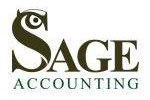Base rate increases again
The Bank of England raised the base rate of interest to its highest level since 2009. What is the full story and what does this mean for payments due to HMRC?

At 1 December 2021, the BoE base rate was 0.1%. It has already been increased three times since. The BoA has now announced that the rate is increased to 1%, which is a 13-year high. Of course, a number of other rates that affect individuals are pegged to the base rate – including HMRC’s penalty interest rate that applies to tax paid late. The late payment tax rate is set at the BoE base rate plus 2.5%. Unfortunately, this interest applies to all late payments, even where a time to pay arrangement has been agreed. Anyone on such a plan may wish to accelerate payments, as the instalments will be more expensive once HMRC increases the rate to 3.5%. This is also unlikely to be the last rate hike, with the next review due on 16 June.
The rate of repayment interest, i.e. where HMRC owe the taxpayer money, remains at 0.5%. This is set at the base rate minus 1%, with a lower limit of 0.5%. This will not increase until the base rate increases above 1.5%.
Related Topics
-
Directors’ fees - can you escape PAYE?
You’ve been asked to join the board of a company in a purely advisory role. For tax and NI efficiency you want your fees to be paid to your own company. Does this arrangement fall foul of HMRC’s off-payroll rules?
-
P46 (car) deadline
-
Filing deadline for self-assessment tax returns

 This website uses both its own and third-party cookies to analyze our services and navigation on our website in order to improve its contents (analytical purposes: measure visits and sources of web traffic). The legal basis is the consent of the user, except in the case of basic cookies, which are essential to navigate this website.
This website uses both its own and third-party cookies to analyze our services and navigation on our website in order to improve its contents (analytical purposes: measure visits and sources of web traffic). The legal basis is the consent of the user, except in the case of basic cookies, which are essential to navigate this website.